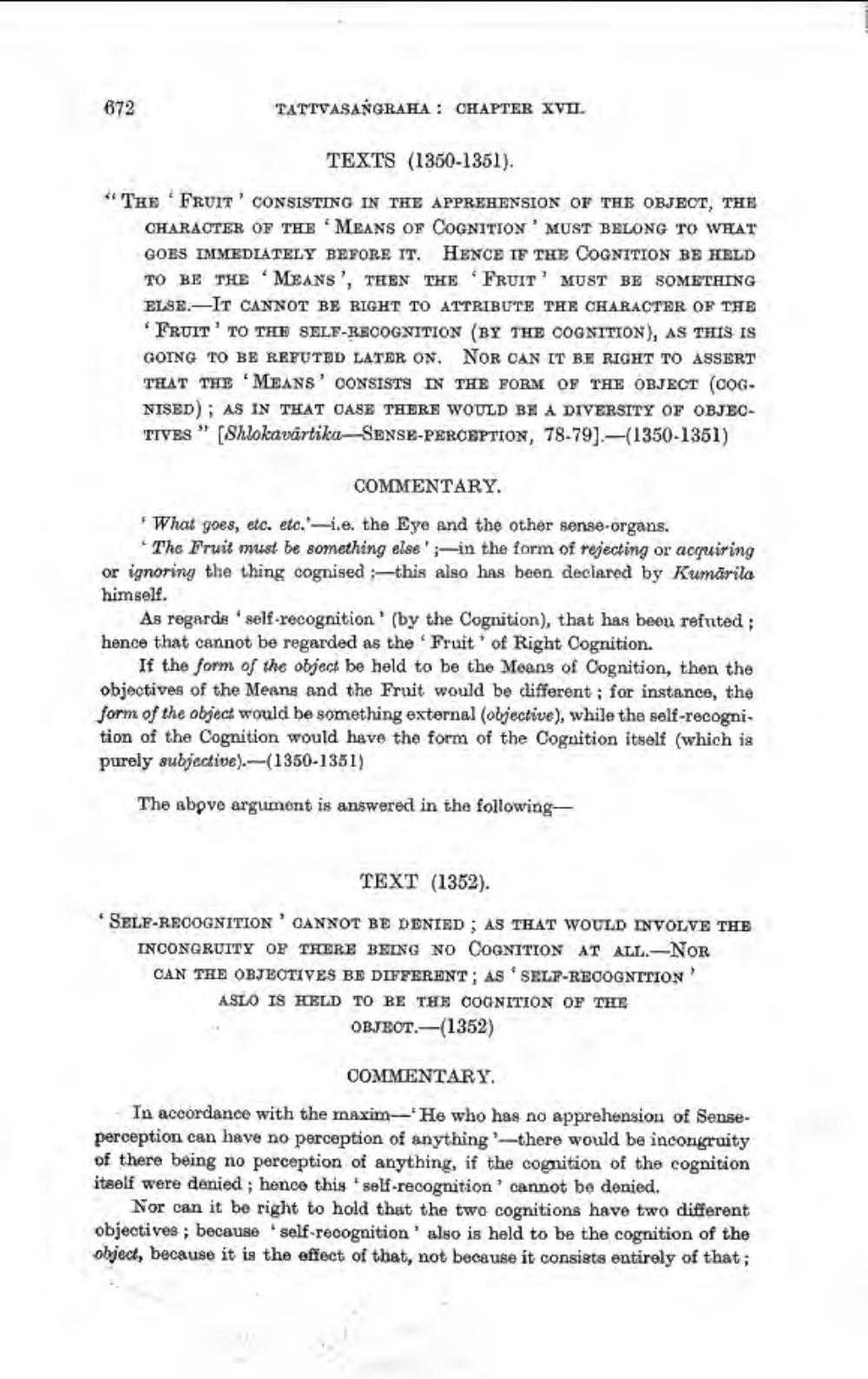________________
672
TATTVASANGRAHA : CHAPTER XVII.
TEXTS (1350-1351).
*THE FRUIT' CONSISTING IN THE APPREHENSION OF THE OBJECT, THE
CHARACTER OF THE MEANS OF COGNITION MUST BELONG TO WHAT GOES IMMEDIATELY BEFORE IT. HENCE IF THE COGNITION BE HELD TO BE THE MEANS', THEN THE FRUIT' MUST BE SOMETHING ELSE.—IT CANNOT BE RIGHT TO ATTRIBUTE THE CHARACTER OF THE
FRUIT TO THE SELF-RECOGNITION (BY THE COGNITION), AS THIS IS GOING TO BE REFUTED LATER ON, NOR CAN IT BE RIGHT TO ASSERT THAT THE MEANS' CONSISTS IN THE FORM OF THE OBJECT (COG. NISED); AS IN THAT CASE THERE WOULD BH A DIVERSITY OF OBJECTIVES" (Shlokavártika-SENSE-PERCEPTION, 78-79).-(1350-1351)
COMMENTARY
What goes, etc. etc.-.e. the Eye and the other sense organs.
The Fruit must be something else' ;- in the form of rejecting or acquiring or ignoriny the thing cognised this also has been declared by Kumarila himself.
As regarde self-recognition' (by the Cognition), that has been refuted ; hence that cannot be regarded as the 'Fruit of Right Cognition.
If the form of the object be held to be the Means of Cognition, then the objectives of the Means and the Fruit would be different ; for instance, the form of the object would be something external (objective), while the self-recogni, tion of the Cognition would have the form of the Cognition itself (which is purely subjective).-(1350-1351)
The above argument is answered in the following
TEXT (1352).
"SELE-RECOGNITION CANNOT BE DENIED; AS THAT WOULD INVOLVE THE
INCONGRUITY OF THERE BEING NO COGNITION AT ALL.-Nor CAN THE OBJECTIVES BE DIFFERENT; AS SELF-RECOGNITION ASLO IS HELD TO BE THE COGNITION OF THE
OBJEOT.—(1352)
COMMENTARY In accordance with the maxim-He who has no apprehension of Senseperception can have no perception of anything '--there would be incongruity of there being no perception of anything, if the cognition of the cognition itself were denied; hence this self-recognition cannot be denied.
Nor can it be right to hold that the two cognitions have two different objectives ; because 'self-recognition also is held to be the cognition of the object, because it is the effect of that, not because it consists entirely of that;




